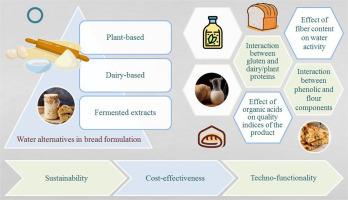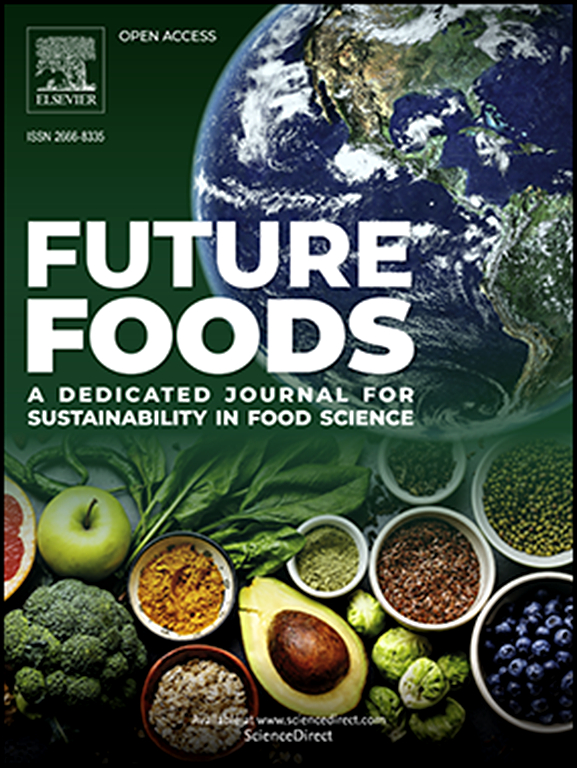The role of water alternatives in bread formulation and its quality; An emerging source of sustainable and cost-effective bakery improvers
IF 8.2
Q1 FOOD SCIENCE & TECHNOLOGY
引用次数: 0
Abstract
Bread as staple food worldwide has a fundamental role in our daily diet. Accordingly, its fortification with sustainable, cost-effective and clean-label bakery additives has received considerable attention. Recently, increasing efforts has been devoted to apply potential water alternatives (WAL) in bread formulation for its enrichment. Water is one of the most important ingredients in bread formulation, which has undeniable effects on rheological behaviors of the manufactured dough, subsequent textural features and other quality characteristics of the final product. There are also some promising reports about potential WAL in bread-making process. These WAL can be categorized in three main groups including dairy-based, plant-based and fermented extracts that are reviewed in the present article. These ingredients have crucial effects on the quality indices of the produced bread. Production of fortified functional bread with improved sensory attributes, enhanced nutritional values, extended shelf-life and modified texture are some of the emerging potentials of these WAL in bakery industries. Protein content, nutritional profile, bioactive ingredients and antioxidant activity of these WAL are also key parameters involved in their techno-functional capabilities of the produced bread.

水替代品在面包配方中的作用及其质量;可持续和具有成本效益的烘焙改良剂的新兴来源
面包作为世界各地的主食,在我们的日常饮食中起着至关重要的作用。因此,它的强化与可持续的,具有成本效益和清洁标签的面包店添加剂已经收到了相当大的关注。近年来,人们越来越多地致力于将潜在水替代品(WAL)应用于面包配方中以提高其含量。水是面包配方中最重要的成分之一,它对面团的流变行为、随后的质地特征和最终产品的其他质量特性具有不可否认的影响。在面包制作过程中也有一些很有前景的报道。这些WAL可以分为三大类,包括基于乳制品的,基于植物的和发酵提取物,在本文中进行了回顾。这些成分对所生产的面包的品质指标有至关重要的影响。生产具有改善感官属性、提高营养价值、延长保质期和改变质地的强化功能面包是这些WAL在烘焙工业中的一些新兴潜力。蛋白质含量、营养成分、生物活性成分和抗氧化活性也是影响其生产的面包技术功能的关键参数。
本文章由计算机程序翻译,如有差异,请以英文原文为准。
求助全文
约1分钟内获得全文
求助全文
来源期刊

Future Foods
Agricultural and Biological Sciences-Food Science
CiteScore
8.60
自引率
0.00%
发文量
97
审稿时长
15 weeks
期刊介绍:
Future Foods is a specialized journal that is dedicated to tackling the challenges posed by climate change and the need for sustainability in the realm of food production. The journal recognizes the imperative to transform current food manufacturing and consumption practices to meet the dietary needs of a burgeoning global population while simultaneously curbing environmental degradation.
The mission of Future Foods is to disseminate research that aligns with the goal of fostering the development of innovative technologies and alternative food sources to establish more sustainable food systems. The journal is committed to publishing high-quality, peer-reviewed articles that contribute to the advancement of sustainable food practices.
Abstracting and indexing:
Scopus
Directory of Open Access Journals (DOAJ)
Emerging Sources Citation Index (ESCI)
SCImago Journal Rank (SJR)
SNIP
 求助内容:
求助内容: 应助结果提醒方式:
应助结果提醒方式:


